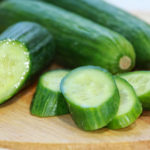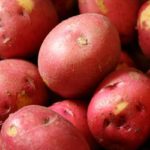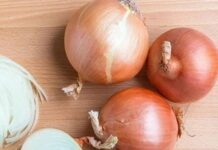Potatoes have become a staple food for many people, and it’s important to handle them properly to prevent any potential diseases. Women, in particular, should be aware of the following three mistakes to avoid when storing and preparing potatoes.
Warning: Refrigerators Are Not Suitable for Storing Potatoes
Proper storage in the refrigerator helps maintain the quality of most common types of food. However, potatoes are an exception. When stored in the refrigerator, potatoes undergo a chemical process where starch converts into sugar. Moreover, when potatoes are fried or baked, this sugar reacts with amino acids to produce a harmful substance known as Acrylamide.
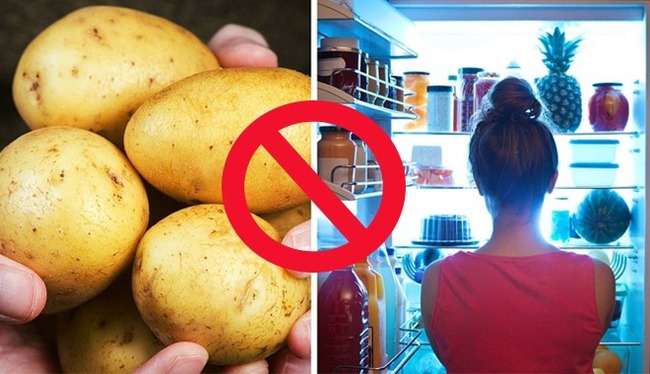
Illustrative Photo
Acrylamide is a chemical compound that is frequently utilized within the paper and dye industry, as well as being present in cigarette smoke. Due to its carcinogenic properties, exposure to Acrylamide compounds significantly increases the risk of cancer. As a result, it is essential to refrain from storing potatoes in refrigerators.
To properly store potatoes, it is essential to keep them in a cool environment and protect them from excessive light exposure.
Warning: Do Not Eat Sprouted Potatoes
There is a common misconception among many individuals that sprouted sweet potatoes and regular potatoes are still safe for consumption. However, this belief is fundamentally incorrect.
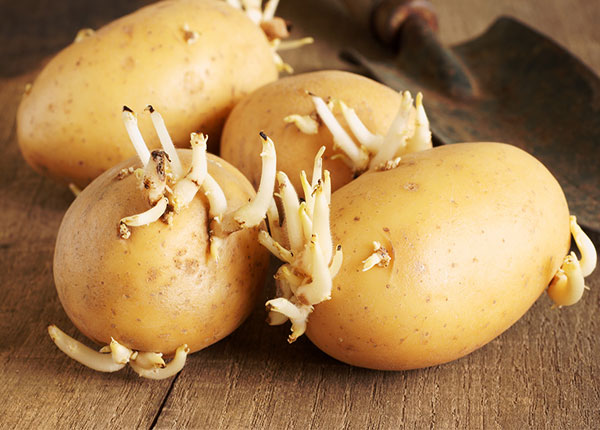
Consumption of sprouted potatoes can lead to glycoalkaloid poisoning due to an increased presence of this compound during sprouting. Symptoms of poisoning typically manifest within a few hours to one day after ingesting sprouted potatoes.
Consuming excessive amounts of glycoalkaloid can result in various adverse effects ranging from nausea, abdominal pain, and diarrhea at low consumption levels, to more severe symptoms such as low blood pressure, rapid pulse, fever, headache, and in rare instances, even death, when consumed in larger quantities.
There have been some limited research findings suggesting a potential association between the consumption of sprouted potatoes during pregnancy and an elevated likelihood of birth defects.
Advice: Don’t Fully Peel Potatoes Before Cooking
Jack Lee, a Vietnamese-Chinese chef, with experience cooking for numerous renowned Hollywood stars, highlights the wastefulness of completely peeling potatoes. He emphasizes that the potato skin holds a wealth of valuable nutrients including carbohydrates, protein, vitamin C and B6, potassium, iron, magnesium, zinc, and fiber.

About
is a skilled professional with expertise in various industries including finance, technology, and marketing. With over 10 years of experience, he has a proven track record of delivering high-quality results and driving business growth. Jack has a deep understanding of financial markets and has successfully managed multimillion-dollar portfolios. He is also well-versed in the latest technology trends and has helped companies leverage digital solutions to achieve their goals. Furthermore, Jack is a talented marketer who has developed impactful strategies that have resulted in increased brand awareness and customer engagement. He is a highly motivated individual dedicated to finding innovative solutions to complex challenges. is committed to continuous learning and personal development to stay ahead in a rapidly evolving business landscape.
To fully harness the nutritional benefits of potatoes and enhance intestinal health through fiber intake, it is recommended to retain the potato skin. This outer layer not only bolsters the digestive system but also possesses antibiotic properties that help counteract bacterial attachment to cells, effectively thwarting the initiation of infections.
To effectively prepare the potatoes, it is important to thoroughly soak and wash them in order to remove any accumulation of mud and dirt from the skin prior to further processing.

























